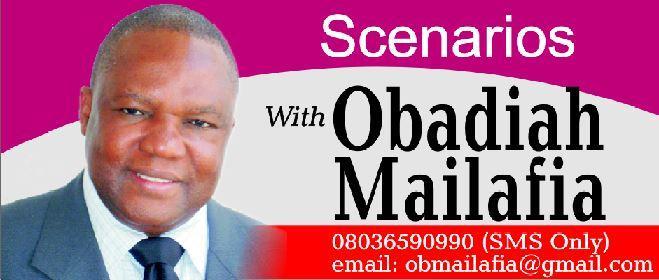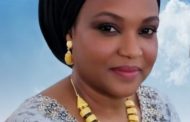Whether it is Covid-19 or not that killed him, Dr. Obadiah Mailafia is gone. But his death compels us to reflect on the main item that defined his politics, particularly in the past few years. That item is the historic politics of difference between the elite of the emirates and those of the Middle Belt in the North of Nigeria. Northern Nigeria is riddled with criss-crossing contradictions of class, gender, ethno-religious, rural – urban and generational dimensions. The way these play out is such that makes the question appropriate as to whether it is the North’s rottenness that accounts for Nigeria’s rottenness or the other way round. It would not be surprising if a serious research finds that it is the North’s challenges that are reflecting on the larger Nigeria rather than otherwise.
Of these complex challenges, the longest running must be the hostility in question. That the hostility has been allowed to linger till this moment is one of the drawbacks of elitism and leadership in the region. That is, elite as the collective whose exacting or rigorous intellectual training and whose nobility of character, broad horizon and enlarged faculties of foresight and prevention should have made them the class which alone “will freely sacrifice a present good in order to avert a future evil”. That notion of elite leadership is automatically interrogated here because a territorially contiguous space as the North risks so much in allowing large scale dissatisfaction in any segment of it to last so long.

Prof Zachary Gundu, a recent entrant into the strategy of the power of voice in the Middle Belt cause
Instead of such a strategic view of the conflict, nearly every other major players in the drama does so as a partisan of one side or the other, hardly ever being able to remove him/her or themselves from the fray as to have been a force for reconciliation. That leaves both sides contesting each other in very hurtful ways that is not warranted. It is not warranted because reality is what we make of it.
While nobody can deny that colonialism produced the said unequal power relations between the two groups which is the issue at stake, somebody or some people could have made the point that the reality in question is not fixed or unchangeable. And that changing it in favour of progress is required because there are peculiar, region specific challenges which require elite consensus to manage from time to time as is everywhere else in the world.
Instead of that view of it, the conflict lingers. The Middle Belt elite are firmly convinced there is a caliphate imaginary at work, defined by a desire to dominate, and violently too. The emirate elite deny this and allege a complex against their non-emirate counterpart. The ensuing contestation compels some of the best and brightest from the Middle Belt to adopt an intellectual form of guerrilla warfare against the system in the North. That is what connects the now late Dr. Obadiah Mailafia to the strategy of the politics of the power of voice. His predecessors in that would include Prof Jerry Gana and Bishop Mathew Hassan Kukah, to cite the model practitioners of that strategy.
It is a great strategy but it comes with many limitations. It is a great deal to rail against hegemony, to be on the forefront of emancipation campaign, to articulate freedom and social justice against any system at all that is insensitive to class, gender, ethnic and whatever else oppression. But railing against whatever is discursive. As we all know, discourse has two sides. The first side is it is produced – the framing of any particular reality. The other side of that coin is that discourse is also productive – it can produce consequences or outcomes but, sometimes, completely outside the imagination of its producer. That irony arises from the fact that the meaning of what a speaker or writer says or writes is not determined by his intention, place or time of doing that but by those who listen or read him or her and for whom meaning making is an interpretive or dialogic exercise. This is why a simple ‘good morning’ can function as a day maker at one point but as a provocation at another.
The implication is that the strategy of discursive warfare could implicate the combatant in reinforcing subordination or enhancing emancipation. It all depends on the audience and what they make of any rhetorical firework against an oppressive system. This is what happens as long as all texts, (not in the sense of text messages or textbooks) are open to deconstruction and the meaning therefrom shifty. Professor Stuart Hall provides the permanent best example of this, using the Israeli-Palestinian conflict. To the Palestinians, it is struggle for the homeland. To the Israelis, it is a case of terrorism and terrorists. The audience here is the international community which, as presently configured, has decided that Israel is the one telling the truth. This is why truth is called a political project, a question of discursive power. It would be interesting to know what a serious study of Bishop Kukah’s rhetorical firework, (books, essays and sermons) on the divide in the North would tell us about which of emancipation or reinforcement of subordination they have achieved more. The outcome should be very interesting for the re-imagination of the Middle Belt-Caliphate conflict in Nigeria, especially in the form they have taken in the wake of the Buhari Presidency.
The original intention of this piece was to retable the Chief Solomon Lar response to this conflict. But, instead of that, the Lar option will be listed along with other plausible options in the concluding piece. The point is that a strategy of fight-to-finish is a no-strategy. Even animals do not fight –to – finish. Any society that does not go forward must degenerate. From what we have seen in the past six or so years in Nigeria, the cost of degeneration can be gargantuan, especially in human lives.




























